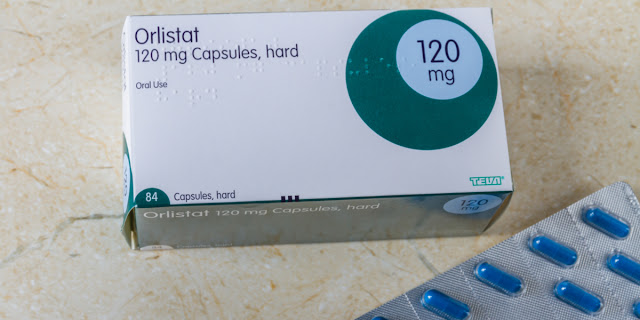How to diet when taking Orlistat?

How to diet when taking Orlistat?
In cases where
obesity is more than obvious, there are some known drugs to control the excess
calories that are absorbed. One of these drugs is Orlistat, a substance
discovered from a fungus and which is capable of preventing the acquisition of
up to 30% of ingested fats.
However, like all
drugs that affect our physiology, Orlistat has its considerations and
consequences. Although it does not have to be dangerous, except in certain
specific situations, it is still a drug and should not be used lightly with the
sole intention of losing weight, without any other consideration.
The commercial
version of tetrahydrolipstatin, an enzyme derived from a fungus called
Streptomyces toxytricini, is known by this name. This enzyme is lipostatin, a
substance capable of inhibiting the action of lipase from the liver. This organ
produces this enzyme to process fats in the diet. The only way to absorb them
is by "breaking them down" so that the intestine can transport them.
By blocking the
action of these lipases, the fats "come out as they enter", that is,
they are defecated since they cannot be absorbed. This allows us to reduce our
lipid intake and, with it, the calories we consume. Orlistat
is taken in pill form, at mealtime (or a little before), to be able to exert its
effect on the liver.
Only a part of the
lipostatin enters the system, acting on the lipase. It is estimated that only
30% of ingested fats are "ignored" by the digestive system. These, as
we said, come out with the faeces, giving them a greasy, not very firm and
unctuous consistency.
Orlistat can be
bought in pharmacies without a prescription. Due to its strong interaction with
the liver, it is a drug recommended only in case of obesity and severe
overweight problems. It also has effects on other medications, such as
fat-soluble antibiotics, and no effects have been described yet in the case of
pregnancy, so caution is recommended.
How does tetrahydrolipstatin work?
As we said, the
liver secretes an enzyme known as lipase. This has several functions related to
fats. First, it is responsible for processing phospholipids and triglycerides,
which are the natural transports of fats in the body (fats do not travel free
and alone). In addition, it is responsible for acting as a ligand, that is, as
a "helper", in the formation of cholesterol.
It is the
cholesterol molecules that capture these lipids and move them from one side of
the body to the other. Hepatic lipase is related to the regulation of the
number of lipids in the body. Orlistat, by inhibiting this enzyme, causes that
the fats that come from digestion cannot be "recovered" by the
intestinal villi. If you want to purchase these weight loss pills online in the UK, you can by searching an online pharmacy.



Comments
Post a Comment